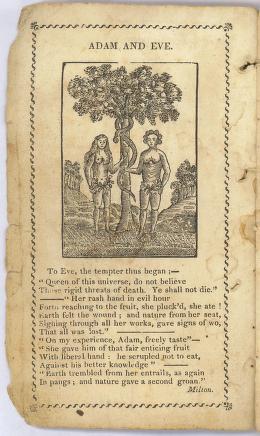|

(c) Pocumtuck Valley Memorial Association, Deerfield MA. All rights reserved.
Gender Roles : Beliefs and Gender Roles
|
|
European and colonial societies organized themselves along patriarchal, Biblically-ordained lines of authority in this period. These same religious tenets sharply defined the roles and abilities of men and women. Male heads of households assumed authority and responsibility for their wives, children, servants and other dependents. Although women played a critical economic role in the household, the law did not recognize them as economically independent individuals. Agriculture remained the main occupation for most people in the 1700s and gender usually determined the tasks a person performed. Men tilled the soil, mowed the hay, cared for the livestock, made fences, and cut and hauled wood. Women cared for children, milked the cows, made butter and cheese, butchered the meat, gardened, made soap and candles, and manufactured cloth that was not purchased. This woodcut of Adam and Eve in the Garden of Eden illustrates the prevailing economic, cultural and religious assumptions about the role of men and women in the early 1700s. Printing images on paper from carved and inked blocks of wood was a relatively inexpensive and easy way to illustrate a book in this period.
Biblical literacy for both men and women was extremely important in this Protestant culture. Ministers and leaders warned, however, that excessive scholarship and study could prove too much for a woman's supposedly weaker intellect. The story of Adam and Eve appeared frequently in early schoolbooks. It endowed Eve with a feeble moral foundation and made her "the weaker vessel," both physically and spiritually. Women inherited the shame and curse of Eve, who heeded the devil in the form of a serpent when she ate from the tree of knowledge. Expelled from the Garden, men had to grow food by the sweat of their brow, women labored in childbirth and all people must eventually die.
top of page
|
"Scripture History, Abridged."
| printer Lincoln and Edmonds |
| date 1819 |
| location Boston, Massachusetts |
| height 5.75" |
| width 3.5" |
| process/materials printed paper, ink |
| item type Books/Non-fiction |
| accession # #L00.028ex |
|





